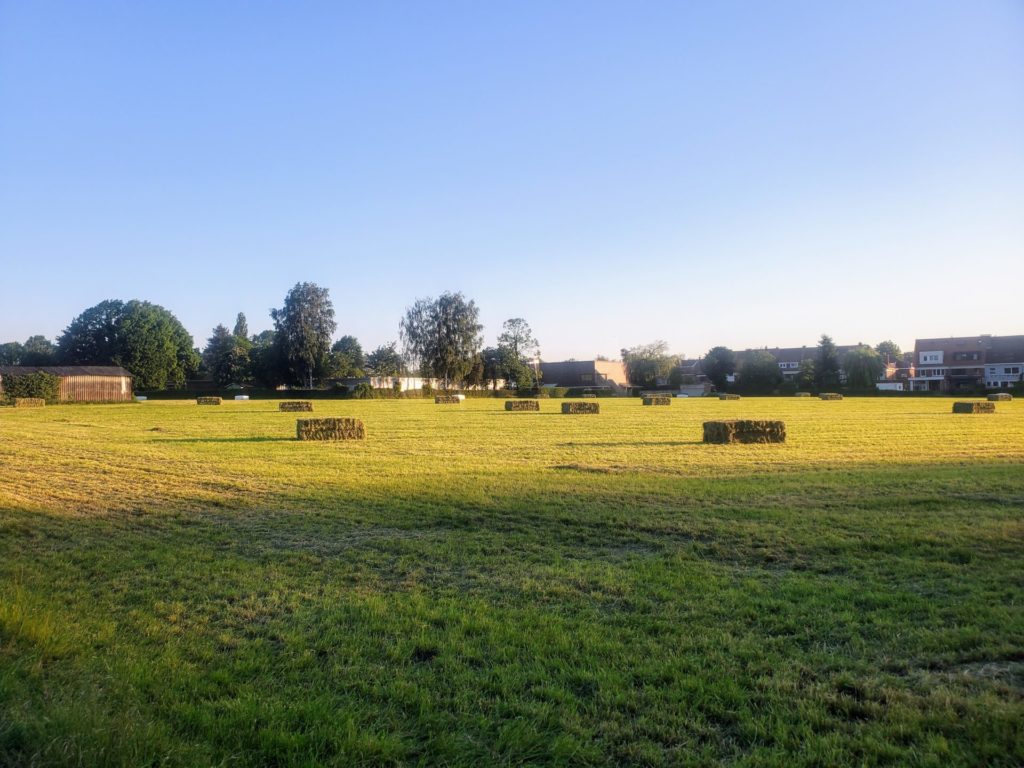A reformed property law in Belgium intended to allow people access to a neighbour’s garden in special circumstances - such as to retrieve lost balls or pets - has sparked confusion in the country; but farmers want to make one thing clear: the right to access private property does not extend to their fields.
The farmers’ collective, Boerenbond, posted a link to a “fact-check” that included clarifications from Deputy Prime Minister and Minister of Justice Vincent Van Quickenborne, one of which specified that the property law could not be invoked to enter fields or meadows.
The fact-check bemoaned inaccurate reports from various media that made it seem as though permission weren’t needed in order to enter private property, clarifying that the only change to existing law was that the owner of private property had an obligation to return items that accidentally ended up there.
“At our insistence and with the support of [Federal MP Koen Geen] we received from minister [Van Quickenborne] confirmation that any form of agricultural land is excluded from the new rules on trespassing,” Boerenbond announced on Twitter.
In other words, fields may not be suddenly entered due to the renewed property law.
1/2: Welkome duidelijkheid: men kan zich dus niet op deze hervorming van goederenrecht beroepen om akkers of weiden te betreden. Lees hier meer: https://t.co/6sR5L8p37f @VincentVQ@Koen_Geens1
— Boerenbond (@Boerenbond) August 25, 2021
Translation: Welcome clarity: one cannot invoke this reform of property law to enter fields or meadows.
The new property law enters into effect on 1 September.
Confusion for farmers arose when Professor Vincent Sagaert (KU Leuven), who helped with the reform, was quoted as saying that hikers could access plots of land “that are not fenced, and where an owner does not make use of their plot,” saying that “in that case, one cannot oppose the fact that a third party is using it in a non-obstructive way.”
The ambiguity was around the definition of “undeveloped” in the phrasing of the law, which states: “When an undeveloped and unworked property is not enclosed, anyone may enter it unless the owner of that property has caused damage or nuisance or has clearly made it known that it is forbidden for third parties to enter the land without his permission.”
Farmers don’t always cultivate every field, every year, often due to crop rotation. Likewise, it isn’t always obvious (especially to people outside of agriculture) when a field has been sown.
“You cannot see that immediately, but treading on it could then damage the crops,” Vanessa Saenen, spokesperson for Boerenbond, told Het Nieuwsblad.
“Grassland is another example. It may look unworked, but the farmer fertilises and mows.”
Regardless, it’s still forbidden to simply walk on a meadow or field, even if the piece of land has not been cultivated that year.
As to why someone would want to enter a field or meadow that’s private property, the most likely reason would be to access a footpath that is interrupted by farmland (the latter of which the law does allow for).
But hikers should be careful when it comes to seemingly wild fields: often, grass strips and flower borders are actually part of farmers' subsidized efforts to combat erosion, protect fields and meadow birds, or buffer vulnerable landscape elements.
If those areas are trespassed on, they can be damaged and rendered ineffective, leading the farmer to risk receiving a lower payment for the management agreement that prompted its creation.
“Our position is well known: agricultural land should never be accessed without permission,” Saenen emphasised.
The property law in question is part of the Civil Code and most agree that it was in need of reform, given that it originated from the time of Napoleon.
Property law regulates everything relating to property, co-ownership, land-use contracts and building rights.

